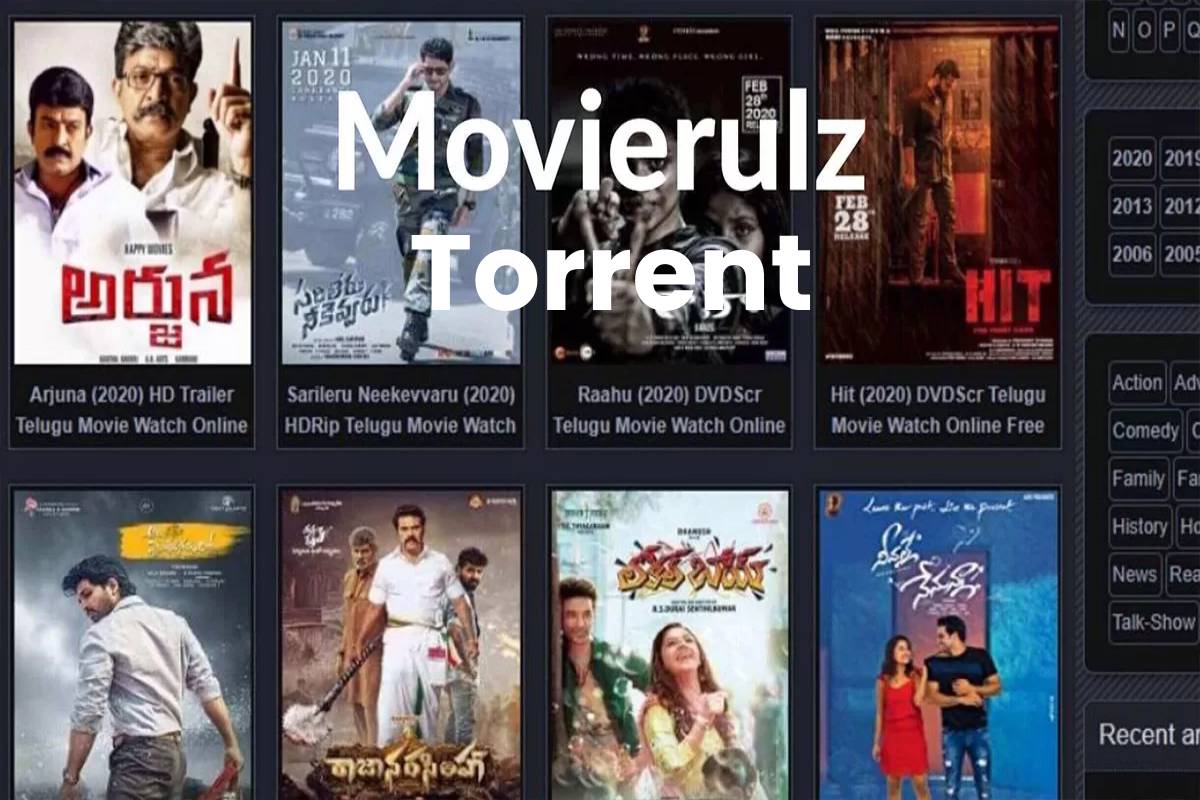Movie Search Fails: Movierulz, Tamilrockers & More [Tips]
In an era defined by instant access and an insatiable appetite for entertainment, are we witnessing the slow demise of traditional cinema-going? The proliferation of online platforms offering movies, often through means that skirt the boundaries of legality, poses a significant challenge to the established film industry. This shift in consumption habits demands a closer examination of the forces at play and their potential long-term consequences.
The digital landscape is now awash with websites and services catering to the demand for readily available film content. While legitimate streaming platforms like Aha are thriving, providing access to Telugu and Tamil movies, web series, and live TV channels in high definition and 4K quality, a darker underbelly persists. Sites like Movierulz, despite their controversial reputation, continue to draw in users with promises of free access to Telugu, Tamil, Hindi, and English movies. These platforms often operate in a legal gray area, offering content without proper licensing agreements, and thus pose a threat to copyright holders and the financial stability of the film industry. The existence of sites such as Moviesda.com, which offers Tamil movie downloads across various actors and categories, further complicates the picture. The ease with which users can access and download copyrighted material has created a culture where online piracy is often seen as a convenient alternative to paying for legitimate streaming services or cinema tickets.
| Category | Information |
|---|---|
| Website Name | Movierulz |
| Primary Content | Telugu, Tamil, Hindi, English Movies, TV Series Updates |
| Content Source | Bollywood, Tollywood, Kollywood |
| Legal Status | Controversial; often operates without proper licensing |
| Accessibility | Accessible through various domains and mirror sites |
| User Base | Significant user base seeking free movie downloads |
| Impact | Contributes to film piracy and revenue loss for the film industry |
| Related Sites | Tamilrockers (similar platform with a history of controversy) |
| Official Website | N/A (Due to its illegal nature, no official or stable website exists. Users often access it through mirror sites and domain variations.) |
The search queries "Www movierulz kannada 2025 tamilrockers" highlight the persistent demand for pirated content, particularly in regional cinema. The inclusion of "2025" suggests a forward-looking expectation that these platforms will continue to operate in the future, despite ongoing efforts to shut them down. The reference to "tamilrockers," another notorious site for pirated Tamil movies, indicates a familiarity with the landscape of online piracy among those making the queries. The repeated "We did not find results for:" messages underscores the difficulty in locating these sites, as they often change domain names and employ other tactics to evade detection and takedown efforts. However, the very act of searching for these terms demonstrates the enduring allure of free movie downloads and the challenges faced by copyright holders in combating online piracy.
The film industry is fighting back, employing various strategies to protect its intellectual property and revenue streams. These efforts include pursuing legal action against websites that host or distribute pirated content, working with internet service providers to block access to these sites, and educating consumers about the negative consequences of online piracy. Furthermore, the industry is investing heavily in developing and promoting legitimate streaming platforms that offer a wide range of content at competitive prices. The goal is to provide consumers with a convenient and affordable alternative to piracy, while also ensuring that copyright holders are fairly compensated for their work. However, the cat-and-mouse game between the film industry and online pirates continues, with new websites and methods of distribution constantly emerging.
The rise of over-the-top (OTT) platforms like Aha has undeniably reshaped the landscape of entertainment consumption in India. Aha, specifically catering to Telugu and Tamil audiences, offers a vast library of movies, web series, and live TV channels, providing a compelling alternative to traditional cinema and television. These platforms boast several advantages, including accessibility, convenience, and affordability. Users can access content on their smartphones, tablets, and smart TVs, anytime and anywhere, without the need for expensive cable subscriptions or cinema tickets. The availability of content in high definition and 4K quality further enhances the viewing experience, making OTT platforms an attractive option for tech-savvy consumers.
However, the proliferation of OTT platforms has also created new challenges for the film industry. With so many streaming services vying for viewers' attention, it has become increasingly difficult for individual films and shows to stand out. The competition for content has also driven up production costs, as platforms compete to secure exclusive rights to popular titles. Furthermore, the ease with which users can subscribe to and unsubscribe from OTT services has created a more fickle audience, making it harder for platforms to retain subscribers in the long term. The industry is grappling with these challenges by experimenting with different business models, such as offering bundled subscriptions, tiered pricing, and personalized recommendations, to better cater to the needs of their viewers.
The reference to "kannada films release dates, trailers, teasers, reviews, and all the latest news on filmibeat" highlights the importance of information dissemination in the film industry. Websites like Filmibeat serve as valuable resources for fans, providing up-to-date information on upcoming releases, behind-the-scenes glimpses, and critical assessments of new movies. This information plays a crucial role in shaping public opinion and driving ticket sales. The availability of trailers and teasers online allows viewers to sample new movies before deciding whether to watch them, while reviews provide valuable insights into the quality of the films. The widespread use of social media has further amplified the reach of this information, allowing fans to share their opinions and recommendations with their friends and followers.
The brief synopsis of "Pushpa" "As his smuggling empire grows, a brazen Pushpa longs for power and respect on his vengeful journey, while facing old rivals and new" provides a glimpse into the narrative themes and character motivations that resonate with audiences. The story of an ambitious protagonist rising through the ranks of a criminal underworld, facing challenges and overcoming obstacles, is a classic trope that has been explored in countless films and TV shows. The themes of power, respect, and revenge are particularly appealing to audiences, as they tap into fundamental human emotions and desires. The success of "Pushpa" and other similar films demonstrates the enduring popularity of these narratives and their ability to captivate viewers across different cultures and demographics.
The phrase "Watch trailers & learn more" serves as a call to action, encouraging viewers to engage further with the content. Trailers are a powerful marketing tool, providing a concise and visually appealing overview of a movie or TV show. They are designed to pique viewers' interest and entice them to watch the full-length version. The phrase "learn more" suggests that there is additional information available, such as cast and crew details, behind-the-scenes footage, and critical reviews. By providing viewers with access to this information, the film industry can create a more immersive and engaging experience, fostering a deeper connection between audiences and the content they consume.
The constant battle against piracy is a multi-faceted challenge. It involves not only legal and technological measures but also a shift in consumer attitudes. Many argue that the availability of affordable and convenient legal alternatives is the key to curbing piracy. If consumers have easy access to a wide range of content at reasonable prices, they may be less likely to resort to illegal downloads. However, this requires a concerted effort from the film industry to offer competitive pricing and flexible subscription options. It also requires a greater awareness among consumers about the ethical and economic consequences of online piracy.
Education plays a vital role in combating piracy. Many consumers may not fully understand the legal and ethical implications of downloading or streaming copyrighted content without permission. By raising awareness about these issues, the film industry can encourage consumers to make more informed choices. This education can take many forms, including public service announcements, online campaigns, and collaborations with educational institutions. The goal is to create a culture of respect for intellectual property and to promote the value of supporting the film industry through legitimate channels.
Technological solutions are also being employed to combat piracy. Watermarking, for example, is a technique that involves embedding a unique identifier into a film or TV show, allowing copyright holders to track the source of illegal copies. Digital rights management (DRM) technologies are also used to restrict access to copyrighted content, preventing unauthorized copying and distribution. However, these technologies are not foolproof, and pirates are constantly developing new methods to circumvent them. The ongoing arms race between copyright holders and online pirates requires a continuous investment in research and development to stay ahead of the curve.
International cooperation is essential to effectively combat piracy. Many websites that host or distribute pirated content are located in countries with weak copyright laws or lax enforcement. By working with international law enforcement agencies, the film industry can take action against these websites and bring the perpetrators to justice. This cooperation can also involve sharing information and best practices, as well as coordinating legal and technological strategies. The global nature of the internet requires a coordinated global response to the problem of online piracy.
The future of the film industry depends on its ability to adapt to the changing digital landscape. The rise of online piracy and the proliferation of OTT platforms have created new challenges and opportunities. By embracing innovation, investing in legitimate streaming services, and actively combating piracy, the industry can ensure its long-term sustainability. The key is to provide consumers with a compelling and affordable alternative to piracy, while also protecting the rights of copyright holders and ensuring that filmmakers are fairly compensated for their work. The balance between accessibility, affordability, and copyright protection will ultimately determine the future of the film industry in the digital age.
The impact of piracy extends beyond financial losses for the film industry. It also affects the quality and diversity of content that is produced. When filmmakers are unable to recoup their investments due to piracy, they may be less likely to take risks on new and innovative projects. This can lead to a homogenization of content, with fewer original stories and a greater reliance on formulaic blockbusters. By supporting legitimate channels, consumers can help ensure that filmmakers have the resources they need to create high-quality and diverse content that enriches our culture.
The debate over online piracy often revolves around the issue of access. Some argue that everyone should have access to information and entertainment, regardless of their ability to pay. However, this argument ignores the fact that creating films and TV shows is a costly endeavor that requires significant investment. Filmmakers and other creative professionals deserve to be compensated for their work, just like anyone else. By supporting legitimate channels, consumers can help ensure that these professionals are able to continue creating the content that we all enjoy.
The issue of online piracy is not simply a matter of right and wrong. It is a complex issue with economic, ethical, and social dimensions. There are no easy solutions, and a multi-faceted approach is needed to effectively address the problem. This approach must involve legal and technological measures, education and awareness campaigns, and a commitment from the film industry to provide affordable and convenient access to content. By working together, we can create a digital ecosystem that supports both creativity and access, ensuring a vibrant and sustainable future for the film industry.
The rise of user-generated content has also complicated the landscape of online entertainment. Platforms like YouTube and TikTok allow anyone to create and share videos, often without any oversight or regulation. This has led to a proliferation of pirated content and copyright infringement. While these platforms have taken steps to address these issues, it remains a significant challenge. The ease with which users can upload and share content makes it difficult to police these platforms effectively.
The future of entertainment is undoubtedly digital. As technology continues to evolve, new platforms and methods of distribution will emerge. The film industry must be prepared to adapt to these changes and to embrace new opportunities. This requires a willingness to experiment with different business models, to invest in new technologies, and to engage with consumers in innovative ways. The industry must also be vigilant in protecting its intellectual property and in combating online piracy. By striking the right balance between innovation, protection, and access, the film industry can ensure its continued success in the digital age.
In conclusion, the challenges posed by online piracy and the evolving digital landscape demand a proactive and adaptable approach from the film industry. Combating illegal distribution, fostering consumer awareness, and embracing innovative business models are crucial steps towards ensuring a sustainable and vibrant future for cinema. The ongoing dialogue between content creators, distributors, and consumers will ultimately shape the future of entertainment in the digital age.

Movierulz 2025 Download Kannada Your Ultimate Guide To Legal And Safe

Movierulz 2025 Download Kannada Your Ultimate Guide To Legal And Safe

Kannada New Movierulz 2025 Your Ultimate Guide To Kannada Cinema